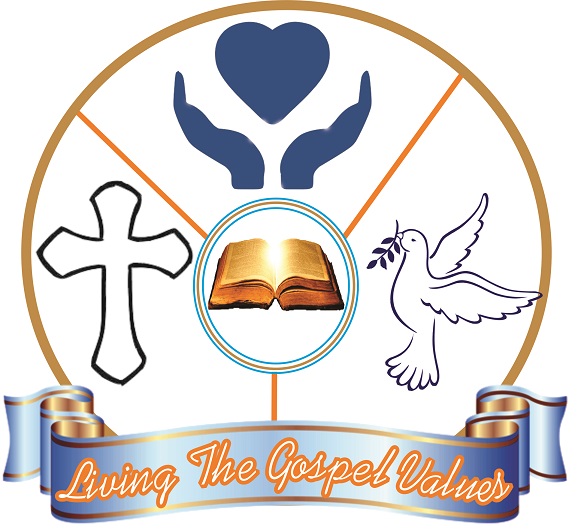Reflection on Today's Readings, Wednesday, 5th Week in Ordinary Time, Year 1 and the Memorial of St. Scholastica February 10th, 2021
Texts: Gen. 4b-9.15-17; Ps. 104:1-2.27-30; Mark 7:14-23
Today's first reading is about the creation of man. It tells us the task for which man is created; it is to maintain the earth and to enhance its beauty. It is said, "The Lord God took the man and put him in the garden of Eden to till it and keep it." This calls us to be mindful of how our actions affect the earth. We are to do things that enhance the beauty of the earth, not things that devalue it. We fail in this divine task whenever our actions affect the earth negatively.
This account of creation story also shows that human life is from God; we live by His breath, His Spirit. It is said, "then the Lord God formed man of dust from the ground, and breathed into his nostrils the breath of life; and became a living soul." The account also reminds us that we are dust and unto dust we shall return; it is by God's breath of life that we are what we are today. We have to live every day of our life in gratitude to God for the gift of breath of life He has given us.
The reading tells us that before God created man He prepared everything man needs to live and survive. It is said, "And the Lord God planted a garden in Eden, in the east; and there he put the man whom he had formed." God has prepared for everyone of us before we were born.
God, in the reading, caused different kinds of plants to grow in the garden, and asked man not eat from some of the tree. St. Paul says, "Everything is permissible; may be so, but not everything does good. True, everything is permissible, but not everything builds people up" (1Cor. 10:23). Though we are free to use things in our environment, not everything is good for us. It is said, "And the Lord God commanded the man, saying, "You may freely eat of every tree of the garden; but of the tree of the knowledge of good and evil you shall not eat, for in the day that you eat of it you shall die." The tree of the knowledge of good and evil does no good to us.
Having various kinds of trees, including the forbidden ones, is the implication of our being free. Freedom requires that we have options; to be free we need to have options. We need to use our freedom to do good and to reject evil.
The gospel reading sheds more light on the nature of the tree of knowledge of good and evil; it is not just a tree, but that which infuse evil thoughts into the heart. Hence, Jesus says, "What comes out of a man is what defiles a man. For from within, out of the heart of man, come evil thoughts, fornication, theft, murder, adultery, coveting, wickedness, deceit, licentiousness, envy, slander, pride, foolishness." We need to stay away from anything that injects evil thoughts into our hearts, they are tree of knowledge of good and evil.
St. Scholastica, whose memorial is today, lived a life of purity right from her early childhood; she kept her heart pure by filling it with spiritual matter and praise of God. Once in a year, she met with her twin brother, St. Benedict, to discuss spiritual matter and to praise God. On their last meeting before her death she asked her brother that they might continue their discussion and praise of God into the night till the following morning, but her brother refused because the rule of his monastery did not allow it. However, St. Scholastica called on God to make it possible. St. Gregory the Great report the encounter thus: "At her brother's refusal, Scholastica folded her hands on the table and rested her head upon them in earnest prayer. When she looked up again, there was a sudden burst of lightning and thunder, accompanied by such a downpour that Benedict and his companions were unable to set foot outside the door. Realizing that he could not return to the monastery in this terrible storm, Benedict complained bitterly. 'God forgive you, sister', he said. 'What have you done?' Scholastica simply answered, 'When I appealed to you, you would not listen to me. So I turned to my God and he heard my prayer. Leave now if you can. Leave me here and go back to your monastery.' By her life she has taught us to keep our hearts pure: We are to focus our hearts on God, praising God and discussing spiritual matter. She has also taught us to turn to God for our needs.
God our Father, we thank you for the honour You have given us among creatures; may we, by Your grace, live to uphold the honour and the dignity. Amen.
Fr. Andrew Olowomuke









0 Comments